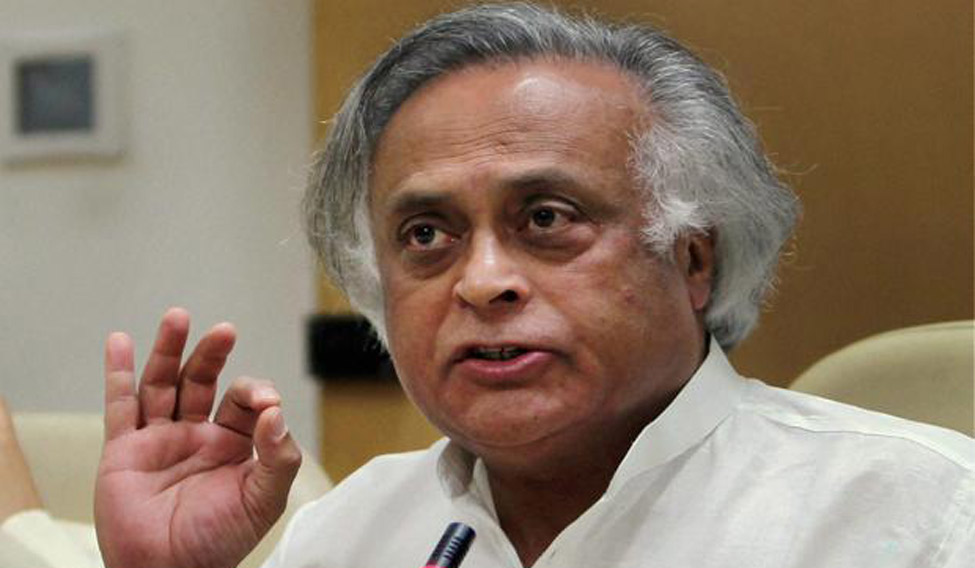Former Union minister Jairam Ramesh has kicked up a debate on the issue of governance in BJP-ruled Uttar Pradesh, saying a division of the state would become inevitable due to its size and large population.
Delivering the second V. Ramachandran Memorial Lecture, organised by the Centre for Management Development here yesterday on "Reflections on India's demographic future", Ramesh said, "I for one believe that the reorganisation of Uttar Pradesh will become inevitable, sooner rather than later."
This was because a state with a population of over 400 million by the middle of the century "will simply become ungovernable, even with landslide mandates for the political party in power", he added.
Ramesh had played a key role in the division of Andhra Pradesh and creation of Telangana during the tenure of the previous Congress-led UPA government.
The Rajya Sabha MP said that over 60 years ago, a Keralite, Kavalam Madhava Panikkar, had written a dissent note in the States Reorganisation Commission report and advocated the breaking up of Uttar Pradesh.
He also claimed that the issue of delimitation of the parliamentary constituencies would present itself by 2026, if not earlier.
It would be highly iniquitous if the states that had succeeded in family planning ended up losing seats in Parliament and the states that had not curbed reproductive profligacy ended up increasing their numbers, the Congress leader said.
Referring to long-term population projections for individual states, Ramesh said the five south Indian states would see their combined share of population fall from the present level of about 15 per cent to around 12 per cent by the middle of the century.
He said the relative shares of the states would also undergo a considerable shift.
"In fact, the share of only four states in the country's population is expected to increase – that of Uttar Pradesh, Bihar, Madhya Pradesh and Rajasthan. The share of all other states will almost certainly fall," he said.
The share of these four states would most likely increase from something like 40 per cent now to about 44 per cent by the middle of the century. This would have great implications for the country's political economy, Ramesh said.
He said Kerala's population was expected to peak at about 39 million by 2041 and start declining thereafter.
Tamil Nadu's population was expected to peak at about 78 million by 2041 and start declining thereafter, he added.
"The population of Karnataka and undivided Andhra Pradesh will begin to decline 2061 onwards. The other states will follow likewise in 2071 and 2081," Ramesh said.
According to him, as per the latest Total Fertility Rate trends and assuming that the pace of decline can be sustained, it does appear highly probable that India's population will begin to decline from 2081.
STATE REORGANISATION
Splitting UP inevitable due to size and population: Ramesh
 [File] Former Union minister Jairam Ramesh | PTI
[File] Former Union minister Jairam Ramesh | PTI
This browser settings will not support to add bookmarks programmatically. Please press Ctrl+D or change settings to bookmark this page.




